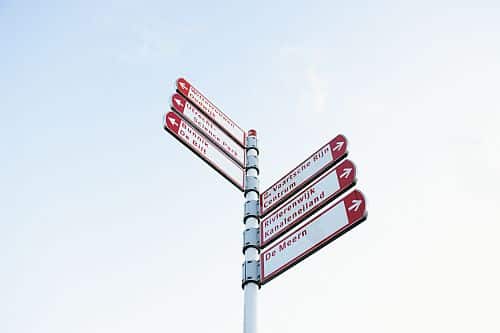
Interpreter
When do I need it? And why is it so important?
17 mei 2021
For the past decades more and more people from all over the world have decided to move to the Netherlands to start a new chapter of their life. A large amount of the people who move here are obviously expats. Normally these expats would move away again after a few years. There is a growing number of expats however who decide to stay in the Netherlands for a longer period of time. Whatever the reason is for coming to the Netherlands , more and more people with foreign nationalities decide to stay for a longer term. With that decision sometimes comes the decision of buying a house.
For us this is noticeable in the growing amount of inquiries we receive from non-Dutch speaking clients.
The whole process of buying a house is often done in English without any problems. After all, expats often do not speak Dutch and there are plenty of real estate agencies in the Netherlands that focus on international clients. In these cases, there is no reason to speak Dutch until you get to the civil-law notary. At the civil-law notary the notarial documents will be in Dutch. Now what?
When do I need an interpreter?
Not every notarial deed requires an interpreter. In the case of notarial deeds related to family law or company law, it is not always necessary for them to be in Dutch.
These deeds may also sometimes be written or explained in English if the parties in the deed have sufficient command of the English language.
Deeds related to property law (the transfer of a house or apartment or the establishment of a mortgage) at our firm will be in Dutch and need to be translated.
In this blog I will explain the process and rules regarding the role of the interpreter.
When should the interpreter be present?
If a party involved in the signing of a notarial deed does not have a sufficient command of the Dutch language, Dutch law requires an interpreter to be present during the signing. This is an interpreter sworn in by a Dutch court who will translate the content of the deed. The notary’s verbal explanation will also be translated. The interpreter co-signs the notarial deed.
A partner or friend who wants to help with translation is not sufficient.
“It is the task of the notary to ensure that you fully understand the content and consequences of the deed. “
Why is it important?
The presence of an interpreter is not only important because it is required by law. It is mostly important for you. It is the task of the notary to ensure that you fully understand the content and consequences of the deed. If your command of the Dutch language is insufficient, you will simply not fully understand the content and explanation of the deed.
When you sign a notarial deed, you also sign for the legal consequences. These consequences can have a hefty impact if they are not complied with. It is important that you are fully aware of what you are signing for.
Why didn’t I need an interpreter in the past?
Dutch legalisation on this subject was less strict prior to October 1999.
In the past, you may have been at the notary’s office to sign notarial deeds and you may not have had an interpreter present. This while your command of the Dutch language was (at the time) insufficient. The current legalisation is as explained above and is the procedure we follow, despite what your experience in the past may have been




What if there is no interpreter present?
If during the appointment the civil-law notary notices that you do not have a sufficient command of the Dutch language and that you do not fully understand the content or explanation of the deed, it will not be possible to sign the notarial deed. The appointment will have to be postponed.
This can result in unintended consequences. Not only will the costs to the notary be higher, sometimes a penalty and/or compensation may become payable to the counterparty.
How do I arrange the interpreter?
Do you not speak Dutch well enough or do you have any doubts about this? Please contact the civil-law notary (or assistant) who handles your case as soon as possible. You may call in the interpreter yourself, but of course we are more than happy to do it for you.
It is important that this is done in good time so that the documents can be adapted and the interpreter has time to prepare.
It is our policy to use an interpreter in the mother tongue of the party concerned. For example: if you are from Italy and speak English as well, we will use an Italian interpreter.
Only in special cases another language can be chosen in consultation.
“Nowadays there is a wide range of different languages available to be translated. “
What are the costs of the interpreter?
The costs of the interpreter are borne by yourself.
Contrary to popular belief, an English interpreter is not always cheaper than an interpreter in a different language. Nowadays there is a wide range of different languages available to be translated. Of course the interpreter will always be arranged in consultation with you so that you are aware of the price in advance. This way you will not face any surprises.
Conclusion
If you do not have a sufficient command of the Dutch language or if you have any doubts about this, we advise you to contact us as soon as possible. In consultation with you, we can then call in the services of an interpreter.
The presence of a sworn interpreter is not only important because this is required by law. It is also very important for you. After all, you are the one who signs the notarial deed and thus accepts the legal consequences. This can have far-reaching consequences for you. For that reason it is very important that you fully understand the contents of the deeds and verbal explanation of the notary and are fully aware of the legal consequences.
If you have any questions about the use of an interpreter in general, you can contact me.




